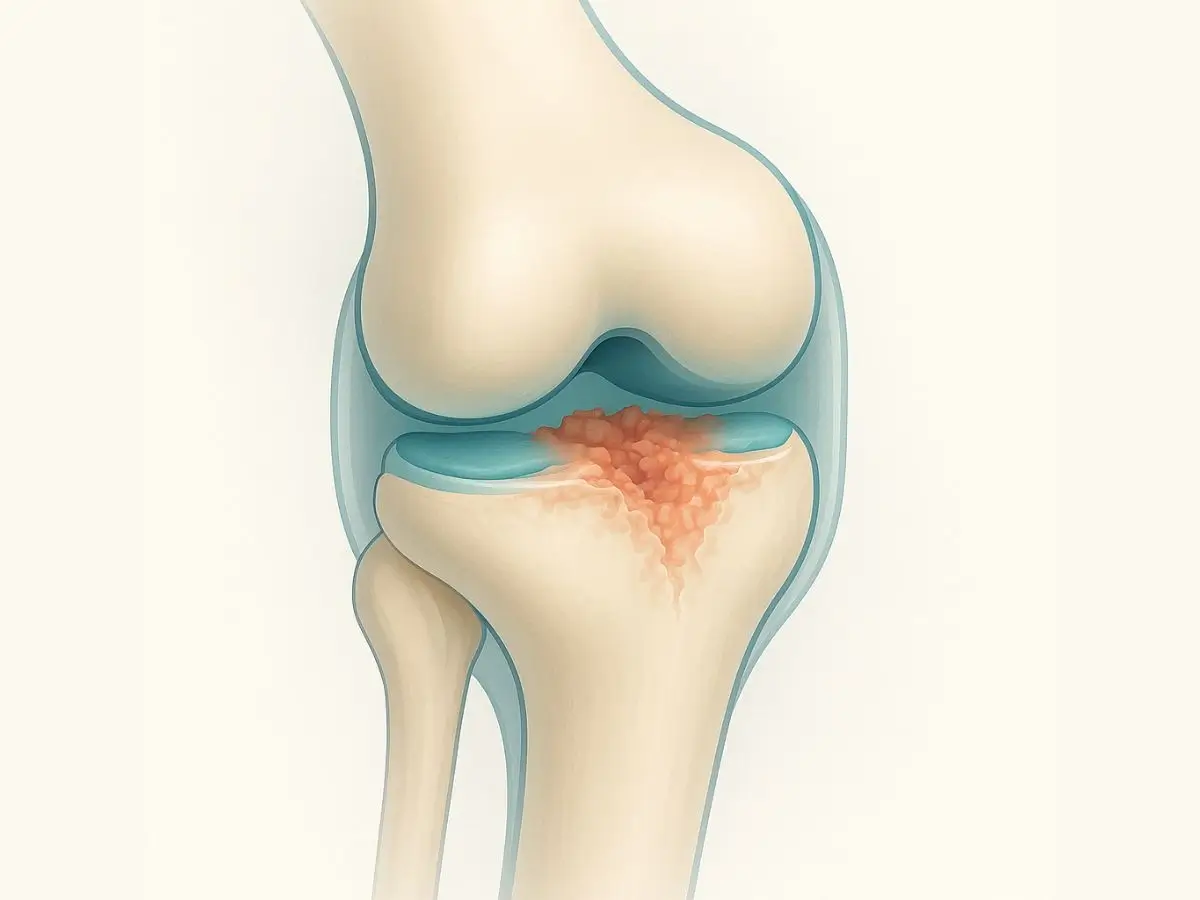Alleviate Knee Pain With Stem Cell Therapy
May 19 2025


Stem Cell Therapy for Knee Pain
Stem cell therapy is emerging as a viable, non-surgical option for individuals struggling with knee pain, particularly due to osteoarthritis and cartilage damage. This regenerative approach uses the body's own healing mechanisms to support joint health and mobility.
How Mesenchymal Stem Cells (MSCs) Help
Mesenchymal Stem Cells (MSCs), especially from sources like bone marrow, adipose tissue, and umbilical cord tissue, are central to this therapy. They can reduce inflammation, promote tissue repair, and potentially regenerate damaged cartilage in the knee joint.
Stem cells have the potential to develop into many different cells in the body depending on their place of origin. Stem cell therapy utilizes this property of stem cells to achieve rejuvenation.
Regeneration and Repair
MSCs are known for their ability to transform into cartilage cells and release growth factors that aid healing. Their use in knee osteoarthritis has shown encouraging improvements in joint function and pain levels.
Supporting Evidence from Clinical Studies
Research supports the regenerative capacity of MSCs. In one study, dogs with chronic osteoarthritis showed notable improvements in mobility and joint health post-injection. Another study involving 30 patients found that MSC therapy led to quicker recovery and fewer complications compared to total knee replacement.
Benefits of MSC Therapy for Knees
Pain Reduction
MSC therapy has been shown to significantly reduce knee pain, improving comfort during daily activities.
Cartilage Restoration
The ability to regenerate full-thickness cartilage makes MSCs particularly effective in managing degenerative joint conditions.
Enhanced Mobility
Patients have reported improved joint flexion and reduced stiffness, aiding in tasks like climbing stairs or walking.
Surgical Alternative
For some patients, MSC therapy offers a less invasive, lower-risk alternative to knee replacement surgery.
How the Therapy Works
Our Autologous Cell therapy is a three-hour outpatient procedure. We ensure safety, complete sanitization, and medical-grade materials to be used during the short procedure for maximum safety and benefit.
- Once in the procedure room, local anaesthesia is given to the extraction area, and bone marrow is extracted in a time span of 15-20 minutes as a painless procedure.
- The extracted bone marrow is taken for processing in our lab where cells are activated mechanically.
- After a couple of hours, the activated cells are introduced back into your body intravenously along with targeted introduction of cells in the affected joints.
Alternatives to Knee Replacement
For those not ready for surgery, regenerative medicine offers alternatives.
Stem Cell Therapy
A painless and proven procedure that rejuvenates the internal organs. Autologous Cell Therapy involves extracting your own cells, activating them through advanced mechanical processing, and reintroducing them into your body—either intravenously or directly into the affected joint. This targeted, natural approach has shown to be a safe and effective way to alleviate knee pain.
Platelet-Rich Plasma (PRP) and Prolotherapy
These options use the patient’s own blood for stimulated healing responses to reduce inflammation and support joint repair.
U Joint Replacement and Regenokine
U joint replacement is a surgical option, while Regenokine involves injecting anti-inflammatory serum derived from the patient’s blood. Both have their own pros, cons, and cost considerations.
Supporting Natural Cartilage Regeneration
Beyond medical treatments, lifestyle changes can also support joint health.
Lifestyle Changes and Supplements
Staying active with low-impact exercise, maintaining a healthy weight, eating anti-inflammatory foods, and using joint-supporting supplements can all promote natural cartilage health.
Stem Cell Activators and Joint Gel
Some patients use oral stem cell activators or topical joint gels to support healing. These may complement formal treatment plans but should be discussed with a healthcare provider.
Conclusion
Stem cell therapy presents a promising and minimally invasive option for individuals managing knee osteoarthritis and cartilage-related issues. Backed by growing clinical evidence and supported by advancements in regenerative medicine, MSC therapy can provide effective pain relief and functional improvement.
As research progresses, this treatment is expected to become more refined and accessible. Patients exploring knee pain relief are encouraged to consider stem cell therapy as part of a comprehensive care plan.
Get Started with Autologous Cell Therapy
At ALIV, we provide holistic wellness and rejuvenation through our medically accredited therapies. We offer advanced Autologous Cell Therapy sourced from your own body - cells derived from you, for your body’s regeneration. Taking a non-surgical path to curbing advanced symptoms, potentially restoring joint health.
Curious to know more, get in touch with us today!
Resources:
- Mesenchymal Stem Cells in the Treatment of Knee Osteoarthritis: A Systematic Review of Clinical Trials, Journal: Cureus (2021), https://pubmed.ncbi.nlm.nih.gov/33612347
- Mesenchymal stem cell therapy in the treatment of osteoarthritis: reparative pathways, safety and efficacy – a review, Regenerative Medicine (2020), https://pubmed.ncbi.nlm.nih.gov/33187041
- Use of stem cells in dog osteoarthritis: A review, Frontiers in Veterinary Science, https://pubmed.ncbi.nlm.nih.gov/34712129
- Comparative outcomes of mesenchymal stem cell injections and total knee arthroplasty in osteoarthritis, https://pubmed.ncbi.nlm.nih.gov/35171013